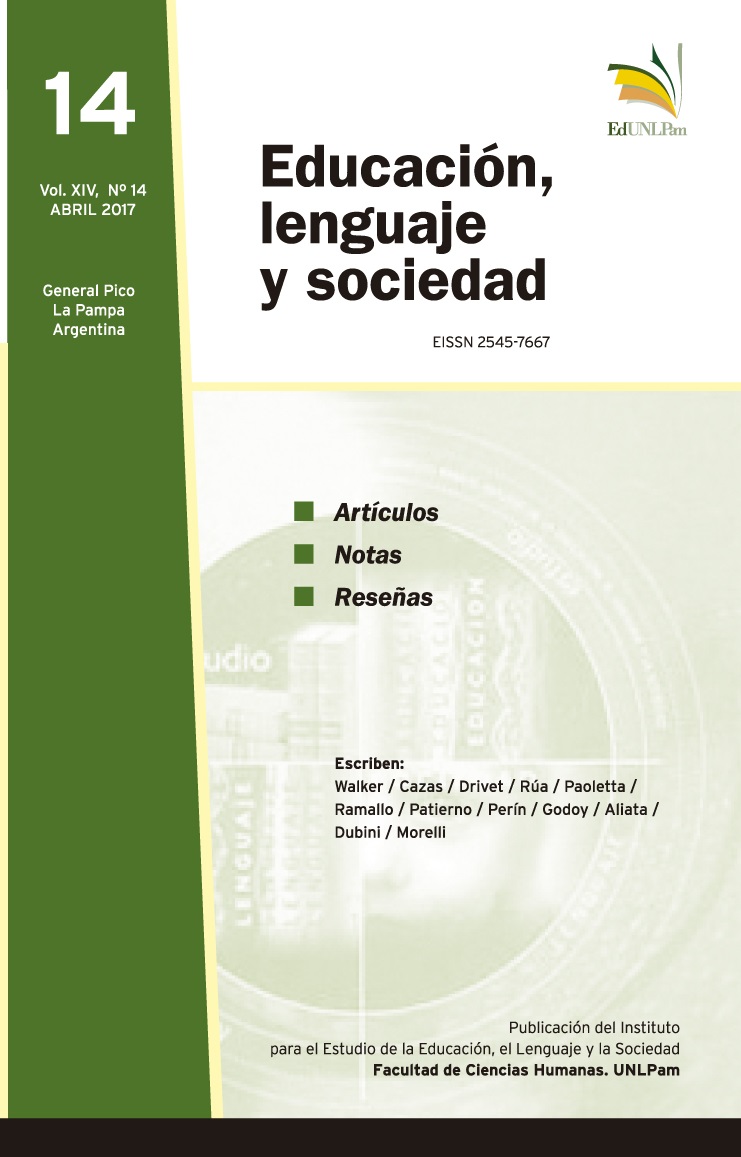Is compulsory the secondary school for youth and adults?: meaning about the mandatory shcolar nature in High School
Keywords:
Compulsory education, Secondary education, School center, Youth, AdultsAbstract
This paper begins by historicizing certain issues that are put at stake in the extension of mandatory schooling in Argentina, as elaborated in the 2006 National Education Law which, in which from its extension to the end of secondary education it includes more actors and institutions. In order to accomplish this, laws and regulations are analyzed, as well as parliamentary debates and variousdocuments. The second half of this paper accounts for the different circulating meanings regarding to the schooling of those who attend Secondary Level Educational Centers (students, teachers, directors). Since they did not tend to identify youths and adults as subjects of the regulation that establishes compulsory education, it is argued that historical configurations intervene in this
stance, configurations that are linked to said command as well as to personal experiences. In this second half of the paper, the records of the ethnographic fieldwork conducted in two Secondary Level Educational Centers are analyzed.
Downloads
Download data is not yet available.
Downloads
Published
2017-12-20
Issue
Section
Artículos






21.png)







